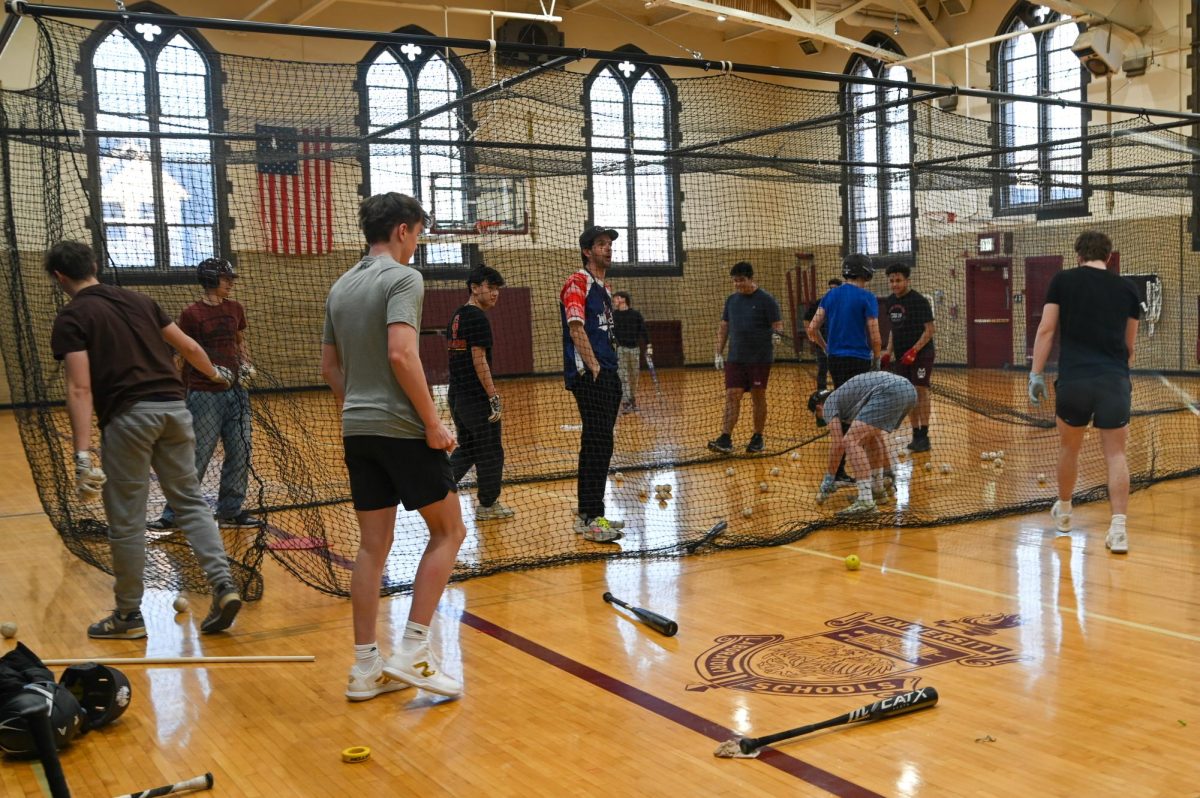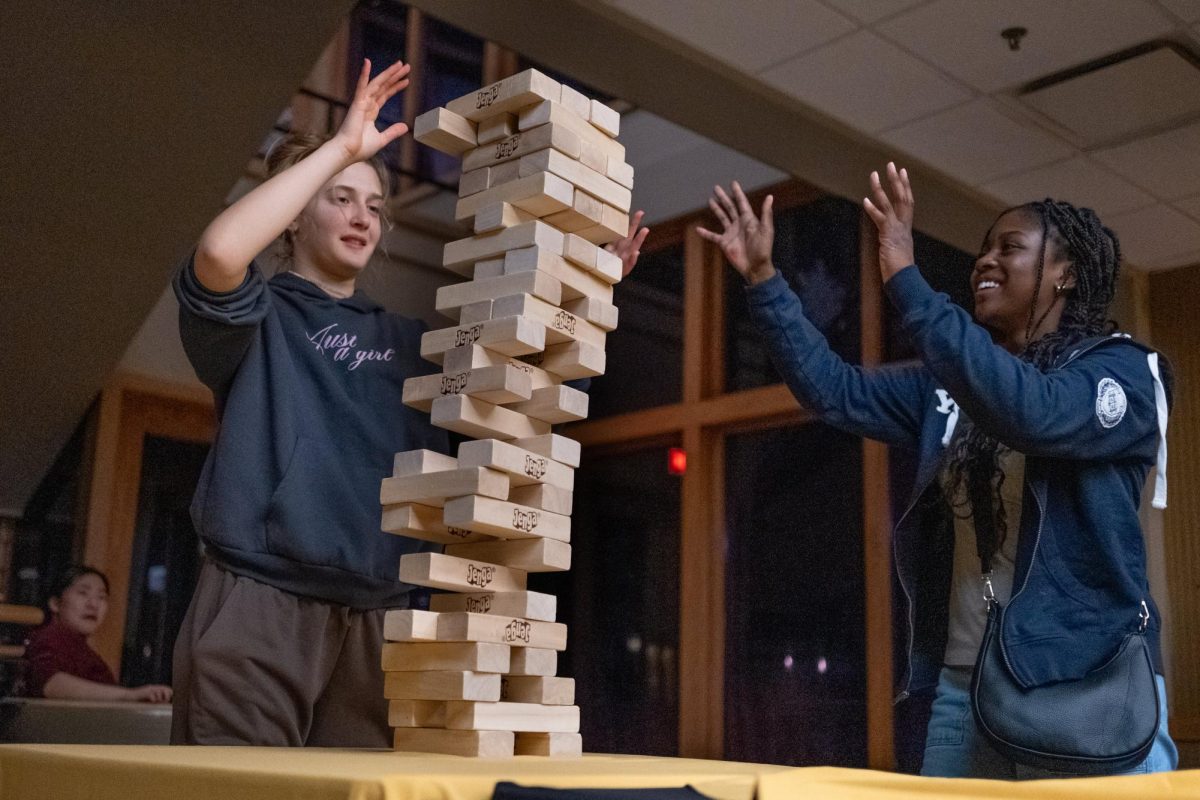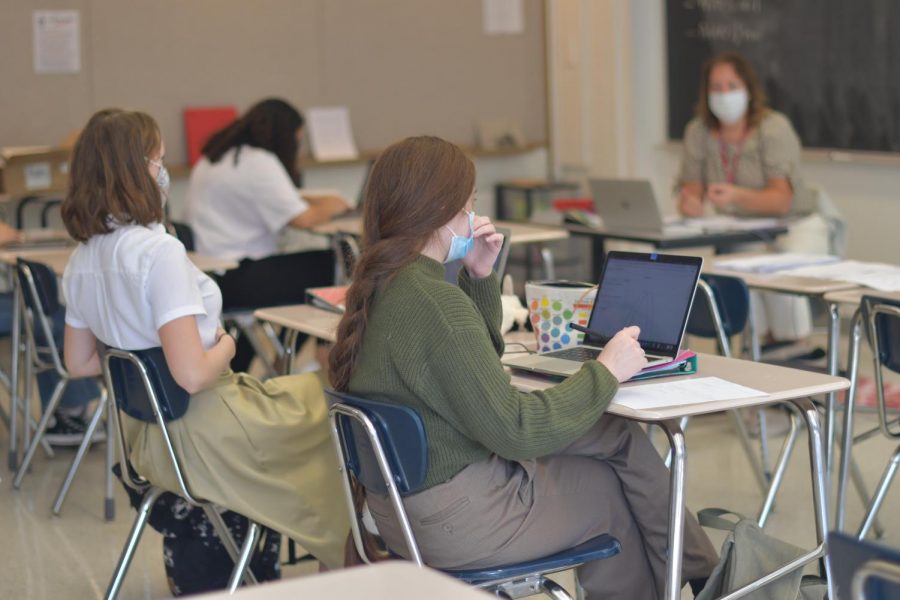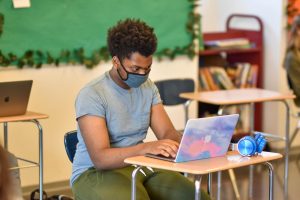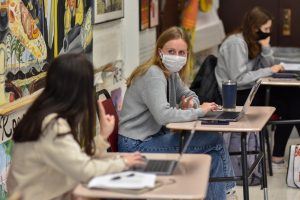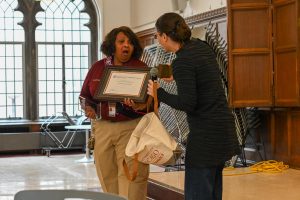In-person school heightens anxiety
Increase in workload prompts students to change schedule and prioritize mental health
Students feel an increase in stress with the sudden change in workload.
October 6, 2021
Like her peers, Maya Mubayi’s days last school year were filled with numerous free periods and time to pursue extracurricular activities. But as Maya started her senior year in September, she found her days swiftly transformed as she jumped from classroom to classroom with only five minutes in between while balancing college applications, homework, sports practice and sleep.
The stark difference between distance and in-person learning has forced students to undergo a significant adjustment, causing effects on students’ mental health.
Along with taking a full course load, Maya has to balance meetings for four clubs in addition to cross country practice.
“I’m struggling to find time to get work done because I am also doing college applications,” Maya said. “We’re all back and kind of getting thrown into school, so homework is a little stressful right now.”
Olivia Gin is a sophomore but experiencing high school in person for the first time. She finds it difficult to find time to complete work, causing an increase of stress.
“I’ve been a lot more stressed out because I have a lot less time to do work,” Olivia said. “Also, since school is starting at 8 a.m. for most days, I have been sleeping a lot less.”
According to Olivia, the stress she experiences due to her overwhelming schedule has affected her school performance. Olivia finds that she falls asleep earlier than usual and must wake up earlier to finish her homework.
“I have seen a change in how I approach things because lately, I’ve been falling asleep at 8 p.m., which is bad for my homework situation,” Olivia said.
According to counselor Aria Choi, students’ schedule change appointments signal that students are being proactive in adjusting their workload.
“While students aren’t directly dropping by within the first three weeks of school with reports of mental health concerns, I’ve had conversations with students who are considering level changes in courses, dropping a course or adding a different course to see how that helps them shape their experience this year,” Ms. Choi said.
Some students, like junior Akshay Badlani, say the return to school has been beneficial toward their mental health.
“In the remote environment, I wasn’t able to interact with as many people all the time,” Akshay said. “I feel like the one thing that makes in-person school so much better is just the little interactions you have with people in between classes.”
Additionally, Akshay found his experience with extracurricular activities during distance learning overwhelming since he was able to enroll in more with his increased free time.
“I feel like I am better able to manage myself during in-person school because communication is a lot more fluid, so I know exactly what homework I am getting each day,” Akshay said.
Similarly, senior Sid Shah has had a positive experience with the return back to school and his mental health as he has found it easier to meet people and hasn’t had trouble readjusting to courses.
“It’s a lot more intense than last year, but I think it’s good because at least we get to be in person with teachers and friends,” Sid said.
According to Ms. Choi, it would be beneficial to students if teachers did general check-ins at the beginning of class or at the start of the week to get a sense of how students are.
“I think the messaging I would want students to hear and take in is that each of them is on their journey but never alone,” Ms. Choi said. “The best and healthy way to get through this year is going to be through relationships between adults and students.”
Meghan Janda, P.E. teacher and an adviser, mentioned that she has been diligent in using class time for self-care. For example, every week the class goes on a walk, which she finds beneficial for students who want to explore locations they can return to if they need to clear their heads. Additionally, the Stress Redux class is offered in all levels of the P.E. curriculum. In previous years, Stress Redux was an elective six-week course.
“I just feel like we are making sure that we are using our time to get some movement in and just really take care of each other,” Ms. Janda said.
While Ms. Janda has seen the energy from students that comes with the return to school, she recognizes a lot of students feel overwhelmed.
“Everyone is A-Z when it comes to their experiences from last year and how they handle everything,” Ms. Janda said. “As long as you remind yourself of that and just have extreme empathy, then I think that we will continue to have our community support each other with whatever needs we may have.”

















































